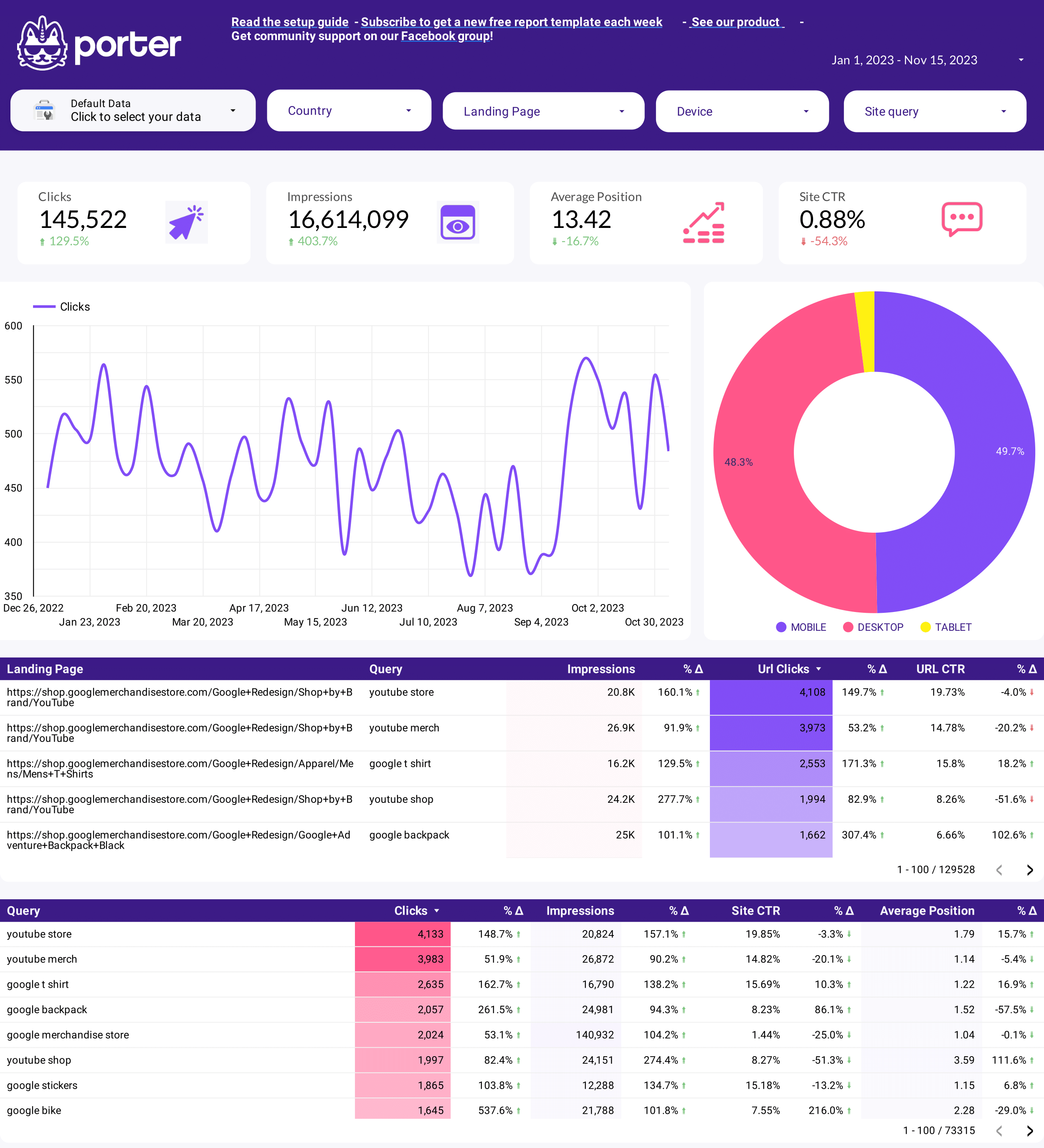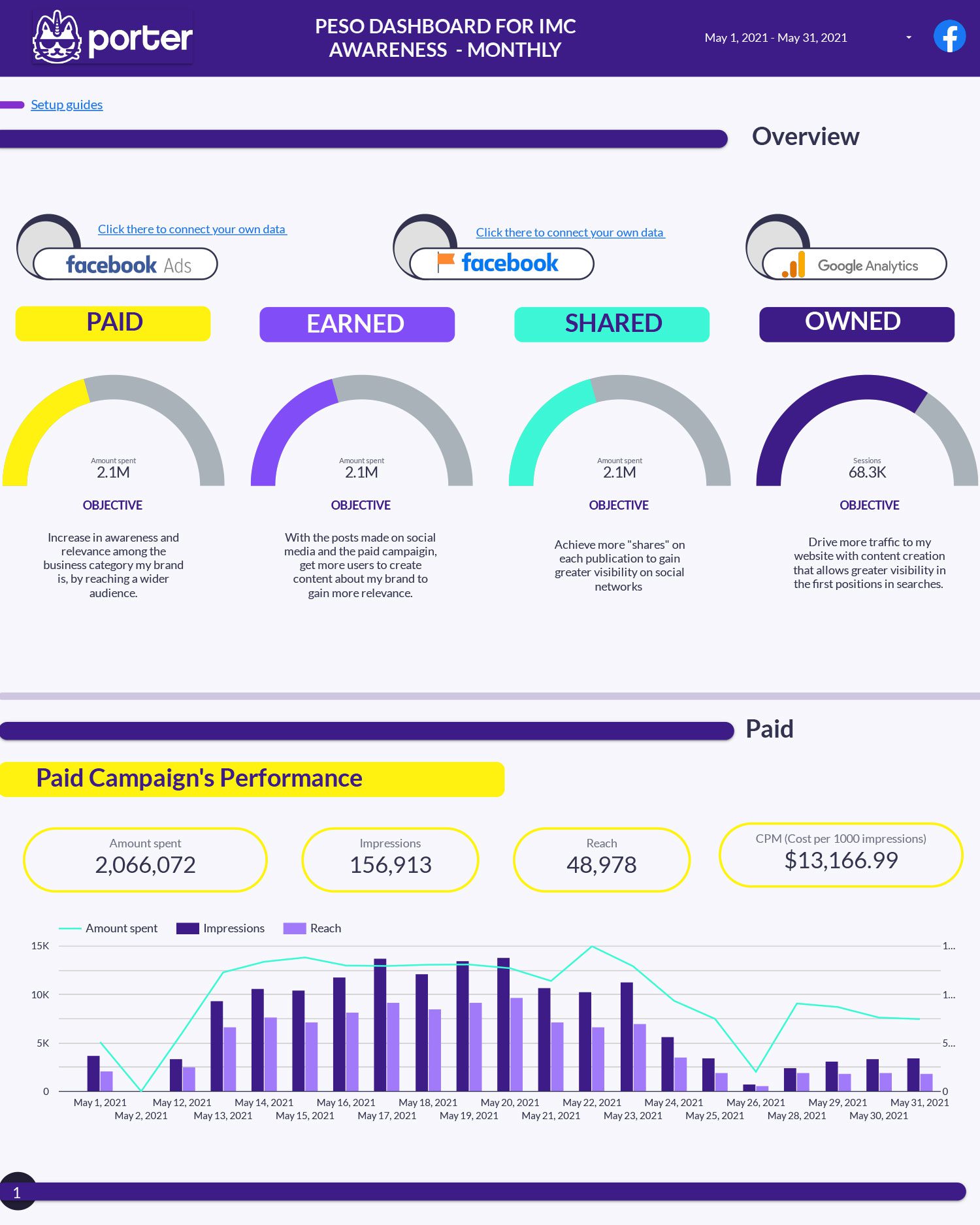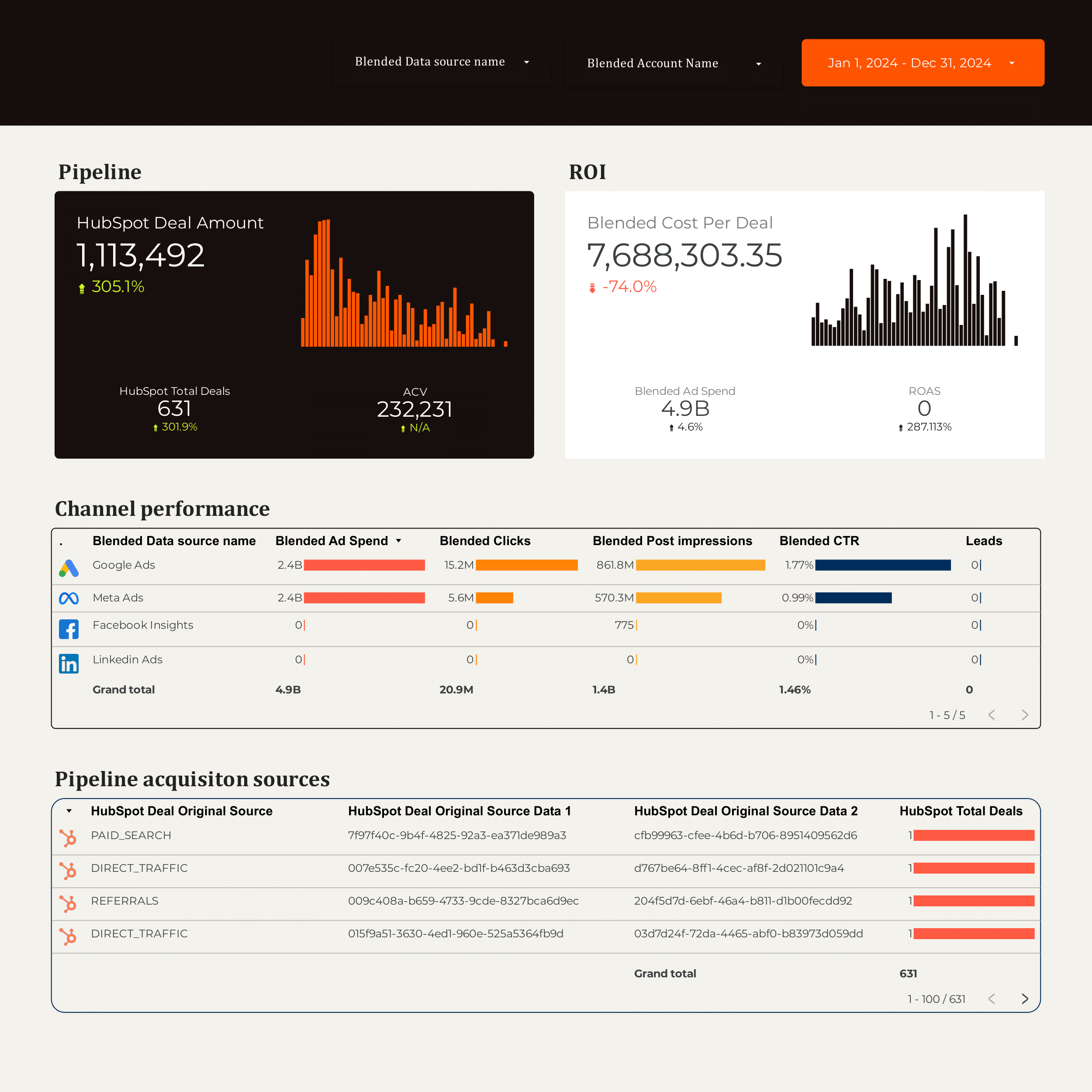SEO Serp tracking Dashboard template
The SEO SERP Tracking Dashboard template is designed to provide a detailed overview of your website’s performance in search engine results. This tool integrates seamlessly with Google Search Console to deliver actionable insights.
With this dashboard, you can:
- Monitor keyword rankings and track their fluctuations over time.
- Analyze click-through rates (CTR) and identify trends.
- Evaluate impressions to understand visibility in search results.
- Identify top-performing pages and optimize underperforming ones.
Utilize this template to make data-driven decisions and improve your website’s search engine performance.

SEO Keyword research Dashboard template
The SEO Keyword Research Dashboard template is designed to streamline your keyword analysis process. This tool integrates seamlessly with Google Search Console to provide actionable insights into your website’s search performance.
With this dashboard, you can:
- Track keyword rankings and identify trends over time.
- Analyze search queries that drive traffic to your site.
- Monitor click-through rates and impressions for targeted keywords.
- Identify opportunities for content optimization and expansion.
Utilize this template to make data-driven decisions and improve your site’s visibility in search results.

SEO Keyword ranking tracker Dashboard template
Welcome to the SEO Keyword Ranking Tracker Dashboard, a powerful tool designed to streamline your SEO efforts by providing real-time insights into your keyword performance. This dashboard integrates seamlessly with Google Search Console to deliver accurate and up-to-date data.
With this dashboard, you can:
- Monitor the ranking positions of your targeted keywords.
- Analyze search visibility trends over time.
- Identify high-performing keywords and areas for improvement.
- Track click-through rates and impressions for each keyword.
Utilize this dashboard to make informed decisions and optimize your SEO strategy effectively. Stay ahead in the competitive landscape by keeping a close watch on your keyword rankings and search performance metrics.

SEO Dashboard template
The SEO Dashboard Template is designed to streamline your SEO strategy by integrating data from Google Search Console and other analytics tools. This template provides a centralized view of your website’s performance metrics, enabling data-driven decisions for content marketing and branding.
Features include:
- Google Search Console Integration: Automatically pull search performance data to monitor clicks, impressions, and average position.
- Content Performance Analysis: Evaluate the effectiveness of your content marketing efforts by tracking page views, bounce rates, and user engagement.
- Brand Visibility Metrics: Assess your brand’s online presence with insights into search queries and audience demographics.
Utilize this dashboard to align your SEO efforts with business objectives, ensuring a cohesive approach to improving search rankings and online visibility.

Peso model Dashboard template
The PESO Model Dashboard template provides a structured approach to analyzing and managing your social media and digital marketing efforts. This template integrates various platforms and metrics to offer a holistic view of your marketing performance.
Social Media Insights are gathered from platforms like Instagram, Facebook, LinkedIn, Pinterest, and TikTok. These insights help in understanding audience engagement and content reach.
- Instagram Insights: Track follower growth, engagement rates, and content interactions.
- Facebook Insights: Analyze page views, post reach, and audience demographics.
- LinkedIn Pages: Monitor page followers, post performance, and professional engagement.
- Pinterest: Evaluate pin impressions, saves, and audience trends.
- TikTok: Assess video views, likes, and follower activity.
E-commerce Metrics are integrated to track sales conversions and customer interactions across social platforms, providing a direct link between social media efforts and revenue generation.
SEO Performance is monitored to ensure that content is optimized for search engines, driving organic traffic to your digital assets.
This dashboard template is designed for marketers looking to streamline their reporting process and gain actionable insights from their digital marketing activities.

B2B Dashboard template
The B2B Dashboard template integrates with HubSpot, Facebook Ads, Google Ads, LinkedIn Ads, and Google Analytics 4 to provide a centralized view of your marketing and sales data.
Utilize this dashboard to track and analyze:
- CRM Data from HubSpot for lead management and sales performance.
- PPC Campaigns across Facebook, Google, and LinkedIn Ads to monitor ad spend and ROI.
- SEO Metrics to assess organic search performance and traffic sources.
- Website Analytics through Google Analytics 4 for user behavior insights and conversion tracking.
This template is designed for B2B marketers seeking to streamline data from multiple platforms into a single, actionable interface.


